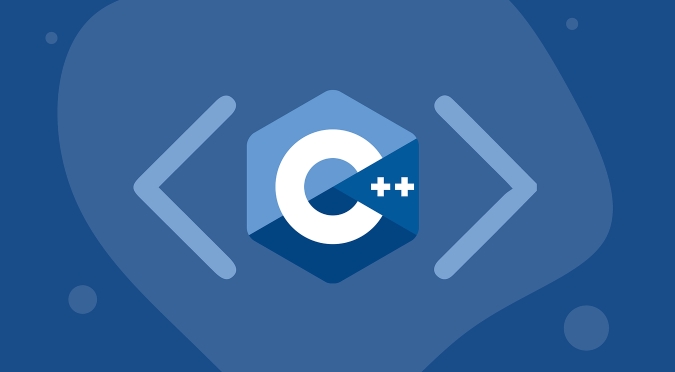How to write a custom iterator in C ?
Jul 15, 2025 am 12:28 AMThe key to implementing a custom iterator in C is to follow the structure and specifications of the standard library iterator. 1. Understand the basic requirements of iterators: it needs to support *it, it->, it, it and ==, != operations, and provide five type aliases to be compatible with STL; 2. Define container and iterator classes: such as the MyArray container and its internal iterator class in the example, implement constructors, dereferences, member access, prefix/suffixes and comparison operators; 3. Notes: Ensure that all necessary type aliases are defined, avoid dangling pointers, distinguish pre-suffixes, and maintain begin/end consistency. If you need random access, you need to implement operators, operators-, etc. and set corresponding iterator_category; 4. Usage scenarios and extensions: suitable for non-standard container traversal, resource secure access, virtual collection generation, etc., and can support const_iterator and reverse iteration in combination with template programming. As long as you clarify the required functions and implement them in accordance with the specifications, you can build an efficient and reliable custom iterator.

The key to implementing a custom iterator in C is to understand how iterators in the standard library work and write them according to certain structures and specifications. Although it seems a bit complicated, it is not difficult to master the basic structure and necessary interfaces.

1. Understand the basic requirements of iterators
The iterator of C is essentially an object that supports some basic operations, such as:

-
*it: access the current element -
it->: access the member of the current element (if the element is an object) -
itorit: move to the next element -
==and!=: determine whether the two iterators are equal or inequality
For STL compatibility, your custom iterator is best inherited from std::iterator (recommended before C 17), or manually provide five type aliases: value_type , difference_type , pointer , reference , iterator_category .
For example, if you are writing a forward read-only iterator, you can set iterator_category to std::forward_iterator_tag ; if it is a read-write bidirectional iterator, you can set it to std::bidirectional_iterator_tag .

2. Define a simple container and iterator class
Let's start with a simple example: a fixed-size array container and its iterator.
template <typename T>
class MyArray {
T data[10];
public:
// Iterator class defines class iterator {
T* ptr;
public:
using value_type = T;
using difference_type = std::ptrdiff_t;
using pointer = T*;
using reference = T&;
using iterator_category = std::random_access_iterator_tag;
iterator(T* p) : ptr(p) {}
reference operator*() const { return *ptr; }
pointer operator->() const { return ptr; }
iterator& operator () { ptr; return *this; } // prefix iterator operator int) { iterator tmp(*this); ptr; return tmp; } // suffix bool operator==(const iterator& other) const { return ptr == other.ptr; }
bool operator!=(const iterator& other) const { return ptr != other.ptr; }
};
iterator begin() { return iterator(&data[0]); }
iterator end() { return iterator(&data[10]); }
};This way you can use this container like you would with vector:
MyArray<int> arr;
for (auto it = arr.begin(); it != arr.end(); it) {
*it = 42; // Modify each element}3. Precautions and common mistakes
- Don't forget to define all necessary type aliases : otherwise, some STL algorithms may not be checked.
- Avoid dangling pointers or references : If your container's internal data changes dynamically, make sure the data pointed to by the iterator is still valid.
- Pay attention to the difference between pre and postfixes when overloading operators : the suffix version needs to return the old value, so it is usually a little worse than the prefix in efficiency.
- Try to maintain consistency : for example,
begin()returns the position of the first element,end()returns the position after the last element.
If you intend to support random access (such as it n or it[n] ), you also need to implement operator , operator- , operator[] , and correctly set iterator_category to std::random_access_iterator_tag .
4. Usage scenarios and extension suggestions
The most common uses of custom iterators include:
- Traversing non-standard containers (such as trees, graphs, linked lists, etc.)
- Provides secure access to resources (such as file flows, network data flows)
- Implement lazy evaluation or "virtual" collections of data generated on demand
If you want to make iterators more general, you can consider combining template programming to support const versions ( const_iterator ), or even support reverse iteration ( rbegin() / rend() ).
Basically that's it. It's a bit cumbersome to write, but it's clear in logic and clear in structure. As long as you figure out which operations you want to support and what categories you inherit, the rest is to implement operator overload step by step.
The above is the detailed content of How to write a custom iterator in C ?. For more information, please follow other related articles on the PHP Chinese website!

Hot AI Tools

Undress AI Tool
Undress images for free

Undresser.AI Undress
AI-powered app for creating realistic nude photos

AI Clothes Remover
Online AI tool for removing clothes from photos.

Clothoff.io
AI clothes remover

Video Face Swap
Swap faces in any video effortlessly with our completely free AI face swap tool!

Hot Article

Hot Tools

Notepad++7.3.1
Easy-to-use and free code editor

SublimeText3 Chinese version
Chinese version, very easy to use

Zend Studio 13.0.1
Powerful PHP integrated development environment

Dreamweaver CS6
Visual web development tools

SublimeText3 Mac version
God-level code editing software (SublimeText3)

Hot Topics
 C Polymorphism : is function overloading a kind of polymorphism?
Jun 20, 2025 am 12:05 AM
C Polymorphism : is function overloading a kind of polymorphism?
Jun 20, 2025 am 12:05 AM
Yes, function overloading is a polymorphic form in C, specifically compile-time polymorphism. 1. Function overload allows multiple functions with the same name but different parameter lists. 2. The compiler decides which function to call at compile time based on the provided parameters. 3. Unlike runtime polymorphism, function overloading has no extra overhead at runtime, and is simple to implement but less flexible.
 What Are the Different Kinds of Polymorphism in C ? Explained
Jun 20, 2025 am 12:08 AM
What Are the Different Kinds of Polymorphism in C ? Explained
Jun 20, 2025 am 12:08 AM
C has two main polymorphic types: compile-time polymorphism and run-time polymorphism. 1. Compilation-time polymorphism is implemented through function overloading and templates, providing high efficiency but may lead to code bloating. 2. Runtime polymorphism is implemented through virtual functions and inheritance, providing flexibility but performance overhead.
 C : Is Polymorphism really useful?
Jun 20, 2025 am 12:01 AM
C : Is Polymorphism really useful?
Jun 20, 2025 am 12:01 AM
Yes, polymorphisms in C are very useful. 1) It provides flexibility to allow easy addition of new types; 2) promotes code reuse and reduces duplication; 3) simplifies maintenance, making the code easier to expand and adapt to changes. Despite performance and memory management challenges, its advantages are particularly significant in complex systems.
 C Destructors: Common Errors
Jun 20, 2025 am 12:12 AM
C Destructors: Common Errors
Jun 20, 2025 am 12:12 AM
C destructorscanleadtoseveralcommonerrors.Toavoidthem:1)Preventdoubledeletionbysettingpointerstonullptrorusingsmartpointers.2)Handleexceptionsindestructorsbycatchingandloggingthem.3)Usevirtualdestructorsinbaseclassesforproperpolymorphicdestruction.4
 Polymorphism in C : A Comprehensive Guide with Examples
Jun 21, 2025 am 12:11 AM
Polymorphism in C : A Comprehensive Guide with Examples
Jun 21, 2025 am 12:11 AM
Polymorphisms in C are divided into runtime polymorphisms and compile-time polymorphisms. 1. Runtime polymorphism is implemented through virtual functions, allowing the correct method to be called dynamically at runtime. 2. Compilation-time polymorphism is implemented through function overloading and templates, providing higher performance and flexibility.
 C tutorial for people who know Python
Jul 01, 2025 am 01:11 AM
C tutorial for people who know Python
Jul 01, 2025 am 01:11 AM
People who study Python transfer to C The most direct confusion is: Why can't you write like Python? Because C, although the syntax is more complex, provides underlying control capabilities and performance advantages. 1. In terms of syntax structure, C uses curly braces {} instead of indentation to organize code blocks, and variable types must be explicitly declared; 2. In terms of type system and memory management, C does not have an automatic garbage collection mechanism, and needs to manually manage memory and pay attention to releasing resources. RAII technology can assist resource management; 3. In functions and class definitions, C needs to explicitly access modifiers, constructors and destructors, and supports advanced functions such as operator overloading; 4. In terms of standard libraries, STL provides powerful containers and algorithms, but needs to adapt to generic programming ideas; 5
 What Are the Various Forms of Polymorphism in C ?
Jun 20, 2025 am 12:21 AM
What Are the Various Forms of Polymorphism in C ?
Jun 20, 2025 am 12:21 AM
C polymorphismincludescompile-time,runtime,andtemplatepolymorphism.1)Compile-timepolymorphismusesfunctionandoperatoroverloadingforefficiency.2)Runtimepolymorphismemploysvirtualfunctionsforflexibility.3)Templatepolymorphismenablesgenericprogrammingfo
 C Polymorphism: Coding Style
Jun 19, 2025 am 12:25 AM
C Polymorphism: Coding Style
Jun 19, 2025 am 12:25 AM
C polymorphismisuniqueduetoitscombinationofcompile-timeandruntimepolymorphism,allowingforbothefficiencyandflexibility.Toharnessitspowerstylishly:1)Usesmartpointerslikestd::unique_ptrformemorymanagement,2)Ensurebaseclasseshavevirtualdestructors,3)Emp






